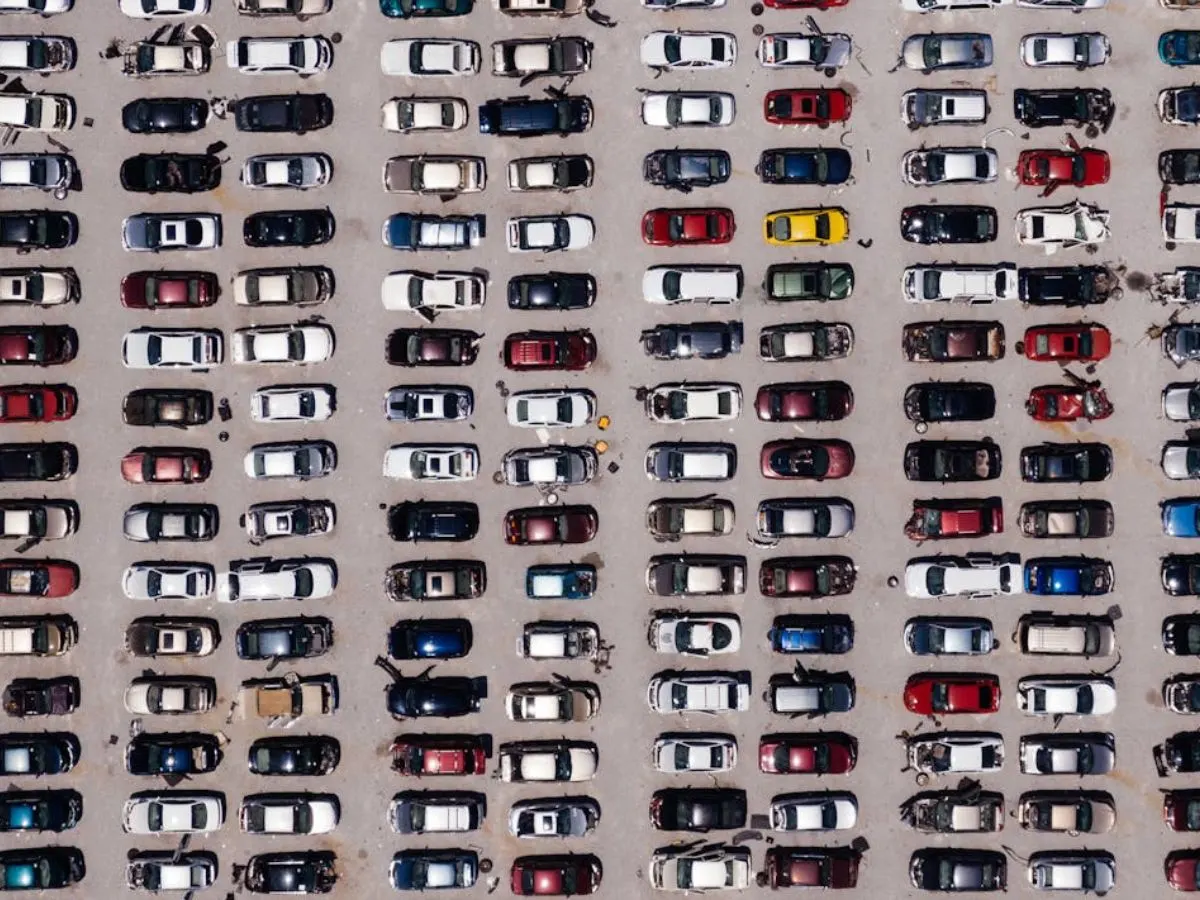The number plates of vehicles are important for the identification of vehicles, regulating traffic, enforcing laws, and preventing offenses. However, in both Pakistan and India, there is a growing trend among vehicle owners to use fancy or non-standard number plates featuring custom fonts, colors, and designs. While this may serve as a fashion statement or personal style, it poses serious challenges to road safety and legal compliance. This blog compares the legal frameworks in Pakistan and India by the title “Fancy Number Plates: Fines & Penalties in Pakistan vs India.”

Table of Contents
What is a Fancy Number Plate?
A vehicle registration plate that does not comply with the officially prescribed format is referred to as a fancy number plate. These plates often feature oversized or undersized characters, non-standard colors, unconventional fonts, and decorative elements such as symbols, monograms, slogans, or emojis. In some cases, the vehicle owner may even replace the official alphanumeric code with names, brand logos, or stylized text to personalize the plate—violating traffic regulations.
RELATED: How to make a driving license in Pakistan?

Fancy Number Plates in Pakistan:
Relevant Law:
The Provincial Motor Vehicles Ordinance, 1965, is the primary legislation for governing vehicle regulations. This law specifies the standard format for vehicle registration plates, including prescribed color schemes, font styles, and dimensions. Additionally, each province has its own enforcement authorities for implementing these rules, responsible for implementing and monitoring compliance.
Penalties & Enforcement:
Using a non-standard or fancy number plate can result in fines ranging from 500 to 5000 Pakistani Rupees or may be even higher, depending on the severity and the region. In case of repeated offence, there may also be impounding of the vehicle or license plate. The authorities mainly responsible for the enforcement of such violations are the Traffic Police and the Excise Department.

Fancy Number Plates in India:
Relevant Law:
The use of fancy or non-standard number plates in India is governed by the Central Motor Vehicle Rules (CMVR), 1989, particularly Rules 50 and 51, which define the dimensions, font, and color of automobile license plates. The major legal framework lays down stricter penalties for traffic violations is the Motor Vehicles Act, 1988, and its recent amendment, the Motor Vehicles (Amendment) Act, 2019. Furthermore, High Security Registration Plates (HSRP) have been made mandatory by the Indian government for all vehicles to use, which include features like a chromium-based hologram and a laser-etched serial number to prevent tampering and duplication.
Legal Requirements:
In India, all vehicles must have the same type of license plate:
- Black letters on a white background for private vehicles.
- Black letters on a yellow background for commercial vehicles.
The use of logos, regional symbols, colored lights, decorative fonts, or customized text is strictly prohibited. HSRPs ensure consistency and are currently required in most states.
Penalties & Enforcement:
Under the Motor Vehicles Act, the fine is ₹5,000 for the first offence and ₹10,000 for subsequent violations. The traffic authorities are empowered to immediately remove illegal license plates, and in extreme cases, vehicles can be seized. Automatic Number Plate Recognition (ANPR) technology, CCTV-based surveillance, and digital challan systems have made enforcement more effective.

Conclusion:
India and Pakistan aim to regulate vehicle identification for safety and enforcement. However, India has improved compliance through stricter laws, harsher penalties, and the adoption of modern technology. However, Pakistan still uses manual methods and faces difficulties in enforcing them. Strict enforcement and increased public awareness are essential to enhance road safety and enforce the law.
RELATED: A Brief History of Cars and Number Plates
Is a fancy number plate allowed in Pakistan?
The registration of cars with illegal or non-standard number plates will now be cancelled by the traffic police. The goal of this decision is to ensure compliance to standard number plate regulations.
Is fancy number plate illegal in India?
According to the Indian Motor Vehicle Act, it is against the law to have a stylish license plate on a car. This includes a different language, fancy fonts, different colors, etc., on vehicle’s number plate.
Why is a 0000 number plate illegal in India?
The 0000 number plate is illegal in India, and it is against the law to use it on any type of vehicle there. In India, the Motor Vehicle Act prohibits car owners from registering their vehicles with the 0000 number plate.
Which type of number plates are illegal in India?
High-level security registration plates are mandatory to enhance safety and traceability, but altered plates or custom fonts are prohibited and subject to fines. Color-coded license plates for electric (green), commercial (yellow) and private (white) automobiles.
What is a fancy number plate?
A fancy number plate is a car registration plate that deviates from the official government requirements for format, font, size, and color. These plates often feature custom fonts, colors, symbols, or personalized text, which are prohibited in most countries, including Pakistan and India.
Are fancy number plates legal in Pakistan and India?
No, fancy number plates are not legal in Pakistan and India.
What are the penalties for using a fancy number plate in Pakistan?
In Pakistan, fines generally range from PKR 500 to PKR 5,000, although they vary by province. The vehicle or license plate may be confiscated by traffic authorities for repeated violations.
Can I customize my vehicle’s number plate legally?
No, customization of number plates is generally prohibited. So you can’t customize vehicle’s number plate.
What is the actual penalty for a fancy number plate in India?
Section 192 of the Motor Vehicles Act, 1988 governs the penalties for using fancy or non-standard license plates in India. For the first offence, the fine is ₹5,000. For subsequent violations, it increases to ₹10,000. Authorities can also seize the car in extreme circumstances. To maintain uniformity and prevent tampering, the government has also made the use of High Security Registration Plates (HSRP) mandatory, making it easier to identify and punish non-compliance.



